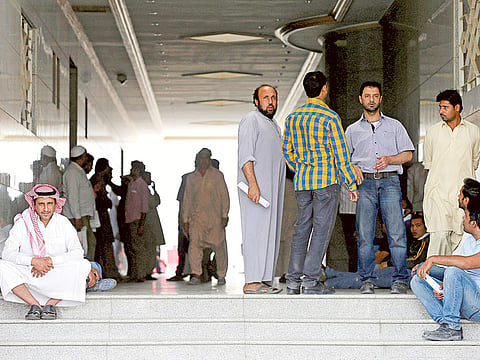Saudi Binladin construction group misses salary payments
Most of the affected employees are based at Binladin’s headquarters in Jeddah

Dubai: Saudi Binladin Group failed to pay thousands of employees as the construction giant reels under the impact of coronavirus and restructures about $15 billion of debt.
The conglomerate missed some salary payments in April and May, according to people with knowledge of the matter. It’s not clear yet whether the company, which employs about 100,000 staff, will be able to pay those employees in June, the people said, asking not to be identified due to the sensitivity of the matter.
Existing problems at the construction firm - for decades Saudi Arabia’s go-to developer for mega-projects such as airports and holy sites in Mecca and Medina - have been compounded by the impact of the coronavirus, which has halted developments and forced the company to burn through cash without any new project mandates, the people said.
Most of the affected employees are based at Binladin’s headquarters in Jeddah and work in its construction unit, the people said. Representatives for Binladin didn’t respond to several calls, messages or emails seeking comment.
Debt Pile
Binladin, which is working with Houlihan Lokey Inc. to tackle its debt pile, put thousands of employees on indefinite, unpaid leave as it sought to lower costs by as much as 50%, people with knowledge of the matter said in May. It also reduced pay by about a third during the holy month of Ramadan to reflect shorter working hours, which impacted about half of its 100,000 employees.
Some unpaid staff have taken to Twitter to voice their anger over the delays. One user said her family feels defeated after her husband didn’t receive a salary for May, while another said: “Do not tire yourselves. We’ve been in this situation for 6 years and nobody gave us face.” Others asked: “When will we get our salaries?”
Even before this year’s crisis, Binladin was still suffering from the oil-price slump in 2015, which forced the company to cut more than 50,000 jobs in 2016. The layoffs prompted a rare show of labor unrest in the kingdom and forced the government to put up the funds to pay salaries.








